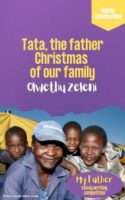If you are a true fan of the local entertainment industry, or have anything to do with keeping the buzz by our local talent alight, then read on!
The artists and actors of the contemporary showbiz evolution might be owing more loyalty to you than the mass speculation, scathing attacks and criticism behind the digital platform and social media infiltrated by the masses every day. All this for simple reasons: to discourage, deter and demonstrate to each other on the basis of our different social and economic standing as individuals and agents of the information era.
One might have to remember when Sunday World published an article under the headline “Zodwa Wabantu makes her first million” (23 Sept 2018). At which the “controversial social butterfly and club dancer” Zodwa Wabantu, real name Zodwa Libram, confirmed to the public that her reality show was to be aired on DSTV’s then-new channel Moja Love. It was produced by former Generations actress Palesa Madikasane, through her production company Thabomo.
In the show, we saw a certain spectrum of Zodwa’s lifestyle as an outspoken, you-are-what-you-eat type, silver tongue and razor-sharp-lipped woman. Zodwa is actually the same woman who we would later learn was crowned with ‘Drama Queen of the Year Award’ for recognising and celebrating the LGBTQI+ community, as she was an ally. She also symbolised freedom of expression and the challenged the status quo, which resonated with the values represented by Feather Awards who conferred the award on her.
Only if you’ve been watching Zodwa’s reality show at a close proximity, as I have been doing, you will recall the episode when Zodwa sent abo malumekazi – her supposed negotiators – for the so-called ‘guy’s lobola’. It was followed by the episode where Zodwa was lauded by the Daily Sun for a photoshoot edit for their then-new lease deal.
In relation to kasi pop culture, you will indeed affirm or even advocate for her sentimental approach on that episode. Especially when she began to mention how “she might have been God sent, and the intermediary to represent the marginalised as their voice”. She spoke with so much conviction and determination. Tears started forming a tinted glow around her eyes, threatening to smudge her meticulously applied make-up, which she usually wouldn’t wear.
Zodwa actually reminded me of Bongani Madondo’s astounding book Hot Type. In the introduction, for example, Madondo attempts to explain how effective pop culture could become and to what extent. As he puts it, “But because, at core, it is business with the best of its expressions underpinning and sustaining the best and worst that capitalism has to offer, it would not, trust me, be diabolical to suggest that God is big business. Contemporary culture is in love and hate or love and hasty affair with God, so much that, quite frustrated, they are quite able to reach the heights He supposedly inhabits, the very egotistic, talented and simply mad of our favourite pop-personalities have dared to make cheap shots to the Almighty himself.”
At this point, Madondo is actually intent on pointing fingers at the audience specifically through this image that appears to be supposedly bigger than life. “Others evoke God in such a way that audiences or interviewers are led to believe that they are big chums with the big force up there. Who can forget the father of funk and the godfather of soul, James Brown, at his peak telling the Rolling Stone Magazine?” This is exactly the feeling I got, while watching that episode of Zodwa Wabantu: Uncensored.
Madondo also managed to capture another aspect: “But you know, once you be lucky enough to do some of the things I’ve done in life, there is a lot of stress. Christ went off – he didn’t want to be around other people when he was praying [I’m only his pal] but at least I got to go off and think…If Christ had to do it, what about me? I am no prophet. [I just possess the same wisdom as one.] I’m just a good person trying to do the right thing. But I got to have time off. I thank God I know what I know.”
What a correlation! According to Zodwa’s insinuations, in her reflections, she says, “I thank God they chose me for being who I am, I don’t need to change sh** about me, thank you so much guys but I’ll never be a model”. In reality meaning, “I don’t have the desire for fake beauty manufactured in a glossy magazine; and false economy consumption.”
Tell us: What are your thoughts about about Zodwa’s lifestyle?


